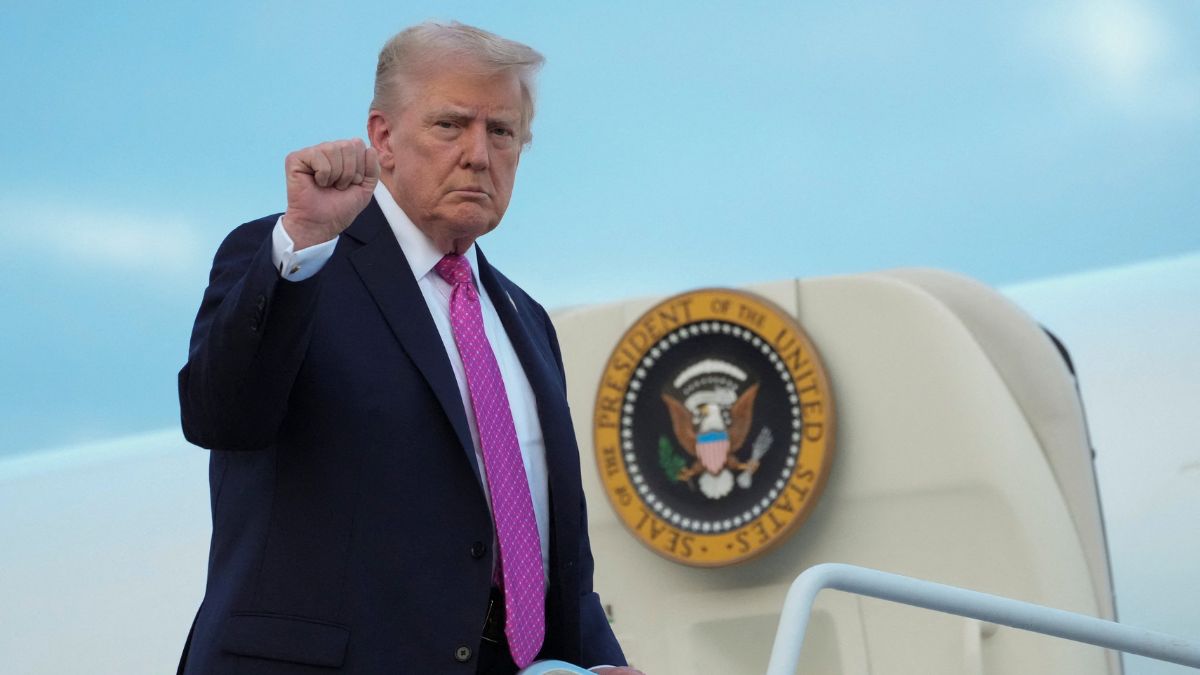“The Proclamation permits prospective exemptions, which can consist of doctors and medical citizens,” White House representative Taylor Rogers stated in a declaration
The White House on Monday showed that medical professionals might be exempt from the Trump administration’s recently presented $100,000 cost on high-skilled H-1B visa applications.
In a declaration to Bloomberg NewsWhite House representative Taylor Rogers stated, “The Proclamation permits prospective exemptions, which can consist of doctors and medical homeowners.”
The proposed visa charge had actually raised issues amongst doctor, who alerted that it might significantly restrict the circulation of global medical graduates getting in the United States.
STORY CONTINUES BELOW THIS ADVERTISEMENT
The $100,000 cost for H-1B visas “dangers shutting down the pipeline of extremely trained doctors that clients depend upon, particularly in rural and underserved neighborhoods,” Bloomberg had actually estimated American Medical Association President Bobby Mukkamala, a Michigan head and neck cosmetic surgeon, as stating.
More from World
)
President Donald Trump recently signed a pronouncement enforcing a $100,000 cost on H-1B visas, a considerable policy shift that might change United States migration.
The administration argues that the charge will guarantee just”extremely experienced”people are approved entry, while preventing business from employing foreign employees to change American workers.
Explaining the relocation as a needed correction, Commerce Secretary Howard Lutnick stated that previous employment-based visa policies enabled people making below-average salaries, typically dependent on federal government support.
He included that the brand-new policy will remove the “bottom quartile” of candidates and is anticipated to produce over $100 billion in income for the United States Treasury.
President Trump stated that these funds would help in reducing the nationwide financial obligation and lower taxes.
Why this matters for Indian specialists
For India, the choice lands like a thunderclap. Around 71% of H-1B visa holders are Indian, the majority of whom operate in the innovation sector. Business such as Infosys, Wipro, Cognizant, and Tata Consultancy Services have long depended upon the program to release Indian engineers and designers on United States tasks.
STORY CONTINUES BELOW THIS ADVERTISEMENT
With visas legitimate for 3 years and renewable as much as 6, the brand-new $100,000 charge might make it excessively costly for companies to keep Indian specialists, specifically provided the decades-long wait numerous face for Green Cards.
The effect surpasses specific professions. India’s $250-billion IT services market has actually grown on sending out skill abroad, especially to the United States. If business think twice to pay the brand-new yearly cost per staff member, chances for Indian specialists might diminish considerably, possibly wearing down India’s competitive benefit in the international tech market.
The United States innovation sector, a significant user of H-1B visas, now deals with substantial unpredictability. While Trump firmly insists that “huge tech enjoys the concept,” financiers reacted nervously.
Reuters reported that shares of IT services business, consisting of US-listed Indian companies, dropped in between 2% and 5% after the statement.
Critics argue the procedure dissuades skill movement and suppresses development, while fans declare it will avoid wage suppression and push business to purchase training American graduates rather.
STORY CONTINUES BELOW THIS ADVERTISEMENT
“Information innovation (IT) companies in specific have actually plainly controlled the H-1B system, considerably damaging American employees in computer-related fields,” stated a White House memo on the problem.
With inputs from firms

